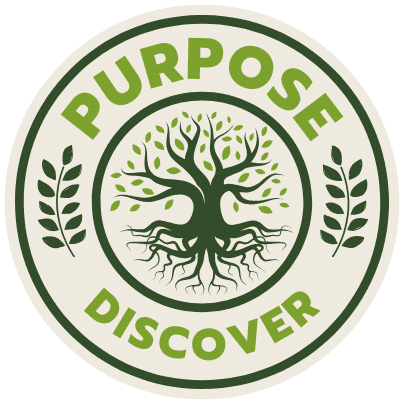Ever sat in the middle of your day and thought, “There’s got to be more to this”? Like, you’ve got your routine down: work, eat, scroll, sleep, rinse and repeat. Yet, something tugs at the edges of your mind, a persistent whisper that the life you’re living isn’t the whole story. It’s a strange feeling, isn’t it? That nagging sense that the world should be richer, deeper, more vibrant than the one you’re stuck inside. It’s like you’re flipping through the same book, but the pages don’t change, no matter how hard you look for a plot twist.
Why does this happen? Why do so many of us feel trapped in this repetitive loop, as if life is teasing us with meaning but never quite handing it over? It’s not just you—this sensation is ancient, baked into the human experience. The urge to find “more” is what’s propelled artists, philosophers, wanderers, and rebels since forever. But figuring out what that more is? That’s where things get tricky.
The Gravity of the Everyday
Here’s the deal: life, by design, has gravity. Not the scientific kind, but the gravity of habit and obligation. We wake up to alarms, navigate traffic, sit through meetings, pay bills, and repeat. This gravity pulls you down, presses against your chest, and tells you, “This is how it is.” The problem is, once you’re used to that pull, you stop noticing it. Until one day, suddenly, you do.
Most people pretend the routine is fine because it’s safe. Change is scary and uncertain. But deep down, it feels like you’re wearing a sweater that’s one size too small, and you keep tugging at it, hoping it’ll stretch out. That itch is the feeling that “there must be more than this.” It’s the soul’s subtle way of complaining that it’s crowded, stifled, or just plain bored.
The Illusion of “More” as Something Out There
A lot of the time, we imagine that “more” lies somewhere else—a new job, a new city, a new partner, or a fancy vacation. But what if the problem isn’t the where but the how? People often chase external changes thinking they’ll solve internal restlessness. They think a new car or a promotion or a bigger paycheck will finally fill that void. Spoiler alert: it usually doesn’t. It’s like trying to fix a leaky faucet by buying a new sink.
This feeling is actually an invitation to look inward. To explore: what do you value? What lights you up? What makes time disappear for you? When you strip away the noise and distractions, what’s left? The answer rarely comes in the form of a checklist or a neatly packaged plan. It surfaces as a series of small awakenings, moments when you catch yourself fully alive, fully present.
The Myth of Settling
There’s this toxic cultural message floating around that if you feel like there should be more, you’re being ungrateful or unrealistic. “Be happy with what you have,” they say. Sure, gratitude is important, but not at the cost of muffling your own yearnings. Settling is what happens when your heart stops asking questions. It’s the slow dimming of your inner fire.
Feeling like there’s more is not a curse—it’s a superpower. It’s the thing that pushes you off your couch and into the unknown. It’s the same feeling that’s allowed humans to invent, create, and dream. Without it, creativity dries up, and life becomes a bland soup. So, give yourself permission to feel that itch without harsh judgment.
The Dance with Uncertainty
Here’s the kicker: the “more” doesn’t have a blueprint. You can’t Google it or download an app for it. It’s messy and unpredictable. It asks you to lean into uncertainty and discomfort—the very things most of us avoid like the plague. But if you want to scratch that existential itch, leaning in is the only way.
Think about it. When was the last time you tried something completely new, without knowing the outcome? That’s where growth lives, in the liminal space between who you are and who you could be. It’s terrifying, thrilling, and yes, exhausting. But it’s also the doorway to the “more” you crave.
When “More” Becomes Purpose
Finding more isn’t about accumulating things or ticking boxes. It’s about discovering a sense of purpose that makes the mundane meaningful. Purpose isn’t some grand, cosmic mission handed down by the universe. It’s often quiet, like a candle flickering in a dark room. It might be found in helping one person, creating one thing, or standing up for one belief.
If you’re feeling stuck, exploring your purpose can be a game-changer. It connects you to something larger than yourself and adds texture to your daily life. If you want to dive deeper into finding your own unique reason for being, there are resources that can guide you through the process, like this insightful place dedicated to helping people uncover their true calling: discovering your life purpose.
The Danger of Waiting
Sometimes the hardest part is realizing that the “more” you’re searching for won’t arrive as a gift. It won’t knock on your door with a bow or a neatly wrapped package. It demands action. It needs you to get uncomfortable, to risk failure, to question everything you thought was true.
Waiting for something external to change without shifting yourself first is like waiting for a ship to sail into port that may never come. The power to create that “more” often lies in your hands, even if the path forward is foggy and confusing.
Embracing the Journey Over the Destination
Here’s something I’ve learned: the feeling that “there must be more” can become less urgent once you stop chasing it like a prize and start living it as a journey. It’s not about finding a final answer or hitting a milestone. It’s about being curious, open, and willing to explore what ignites your spirit.
You might find your “more” in meditation, in messy creative projects, in deep conversations with strangers, or in spending time alone with your thoughts. The possibilities are endless because “more” isn’t a place—it’s an experience.
If you’re eager to keep that curiosity alive and build a life that feels expansive, check out resources that focus on living intentionally and authentically, like this site that unpacks the meaning behind our choices: understanding your personal mission.
Why Isn’t Everyone Feeling This?
Not everyone walks around with this itch. Some people are perfectly content living their days on autopilot. That’s fine, too. But if you do feel it, cherish it. It’s a sign you’re awake, engaged, and reaching beyond the surface.
Sometimes society values conformity and discourages questioning. Maybe you’ve been conditioned to silence your curiosity in favor of fitting in. Recognizing that and breaking out of that mold can be the first step toward the “more” you crave.
What Happens When You Stop Fighting the Feeling?
There’s a paradox here. The more you resist the feeling that “there must be more,” the louder it gets. But the moment you stop pushing against it, stop trying to analyze it to death, is often when you start uncovering what it truly means for you.
It’s less about solving a riddle and more about listening closely—really listening—to what your gut, your heart, your restless mind is saying. That’s where the magic happens.
If you’re ready to start listening and exploring what lies beneath those restless thoughts, you might find some valuable guidance on this platform dedicated to helping people live meaningful lives: exploring deeper life meaning.
Life feels like a script written for someone else sometimes, doesn’t it? But here’s the wild truth: you’re the playwright. That feeling that there’s more? It’s your cue to start rewriting the story, to add layers, twists, and depth. It won’t be easy, and it might not be clear where you’re headed. Yet, living with that restless curiosity might just be the most alive you’ve ever felt.
If you keep hearing that little voice inside whisper, “There must be more,” maybe it’s time to stop ignoring it and start asking the tough questions. What will you find on the other side of that search? Only you can say. But one thing’s for sure—the journey itself will change you in ways you can’t predict.

